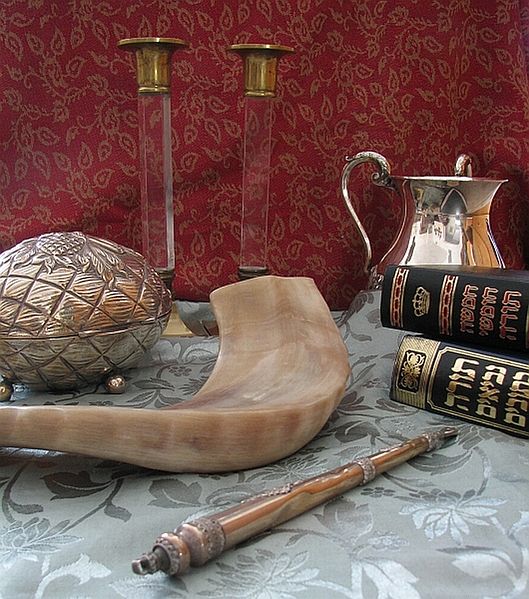23 May. The Jewish followers of Jesus accept that God loves non-Jews.
"The apostles and the believers in Judea heard that some who were not Jewish had accepted God's teaching too. But when Peter came to Jerusalem, some Jewish believers argued with him."
"They said, 'You went into the homes of people who are not circumcised [so not Jewish] and ate with them' [which is against the Jewish religious laws]. So Peter explained the whole story to them..."
"When I began my speech, the Holy Spirit came upon them just as he came upon us at the beginning. Then I remembered the words of the Lord [Jesus]. He said, 'John baptised with water, but you will be baptised with the Holy Spirit.'"
"'Since God gave them the same gift he gave us who believed in the Lord Jesus Christ, how could I stop the work of God?'"
"When the Jewish believers [and the other apostles] heard this, they stopped arguing. They praised God and said, 'So God is allowing even those who are not Jewish to turn to him and live.'"
(Acts 11:1-18)

We have never heard a sermon preached on this passage from Acts 11:1-18, yet, for non-Jewish believers in Jesus (including us), it is one of the most remarkable passages in the whole of the Bible!
Christianity has its roots in Judaism. Jesus was a Jew - a fact we often forget! He was circumcised eight days after his birth to permanently show his Jewishness (see Luke 2:21), and this would have been clear when he was stripped naked when hanging on the cross. The Romans delighted in exposing a man's 'Jewishness' when they crucified him.
Jesus was the Jewish 'Messiah' or 'Christ', the 'anointed one' of God whom the Jewish prophets had foretold (see 'Who was the Messiah?' @ https://www.thebiblejourney.org/…/2-john-the…/johns-message/) and whom many Jews in Jesus's day were waiting for (and many are STILL waiting for).
The first followers of Jesus were all Jews who came to believe that Jesus was the Jewish 'Messiah' (Hebrew) or 'Christ' (Greek) sent by God. Peter himself was the first to acknowledge that Jesus was the Jewish 'Messiah' or 'Christ' (see Mark 8:27-29). Only gradually, after his resurrection from the dead, did they come to realise that Jesus was far more than this (see Matthew 28:16-20).
Only in John's Gospel (written about 20 years after the other three gospels in c.85AD) do we see followers such as Thomas worshipping Jesus as 'My Lord and my God' (John 20:28). John is the only gospel writer who starts his Gospel by stating boldly, "In the beginning was the Word [Jesus]. The Word was with God, and the Word was God." (John 1:1). Only in John's Gospel do we find John the Baptist calling Jesus "the Son of God" (John 1:34), and do we find Jesus using God's personal name 'I AM' (YHWH in Hebrew) for himself (see John 8:58).
So, Jesus's Jewish followers (including his twelve closest disciples) saw Jesus, initially, as the Jewish 'Messiah' or 'Christ', the 'anointed one' of their own Jewish God. He was seen as exclusively for Jews who worshipped the one true God. Once again, God had shown his favour to his chosen people, the Jews, by sending the Jewish Messiah. No wonder the apostles and the Jewish followers in Jerusalem 'argued' when it became apparent that God had showered his Holy Spirit on a group of non-Jews in Caesarea! And not only that, these non-Jews were quite clearly of the 'worst sort' - a family belonging to the hated Roman occupation forces.
These Jews (like many in Israel today) were so proud and arrogant that they believed God only cared for Jewish people and rejected non-Jews as worthless creatures to be treated as little more than 'dogs' (see Mark 7:27).
So when the twelve apostles and the Jewish believers in Jerusalem reluctantly acknowledged that the God of the Jews also loved non-Jews and was pouring his Holy Spirit on them (see Acts 11:18), this was a hugely significant moment for the future of the Jesus movement - first called 'The Way (of the Christ)' (see Acts 9:2) and later known as 'Christianity' (the followers of Jesus the 'Christ' or 'Messiah', the Son of God) (see Acts 12:26). For the first time in Jewish history, the God of the Jews ('YHWH' or 'I AM' - see Exodus 3:14) was acknowledged as the one true God of all mankind.
The photo (by Gila Brand) shows some of the religious objects associated with Judaism - candlesticks, an etrog box, a shofar, a Torah pointer, natla and Tanach.
You can read more about Judaism @ https://www.thebiblejourney.org/…/21-the-romanojewish-worl…/.
